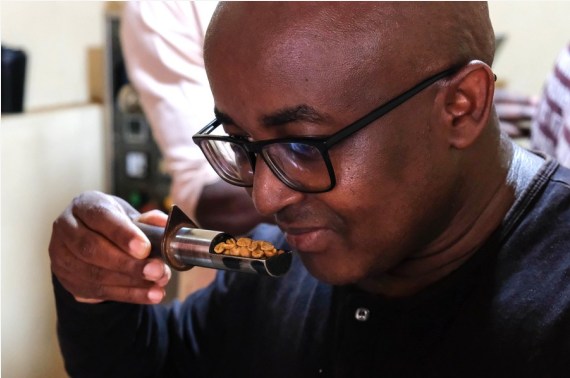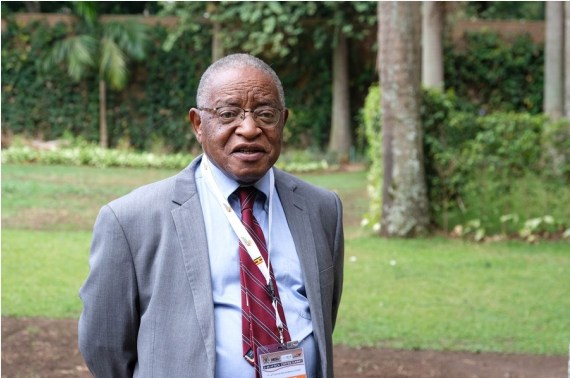By Xinhua
KAMPALA, Aug. 11 (Xinhua) — Officials from 25 coffee-producing countries in Africa gathered in Uganda for a four-day meeting that wrapped up Thursday, vowing to protect the continent’s fair share in the global value chain.
The meeting, dubbed the 2nd G-25 Heads of State Africa Coffee Summit, was convened under the theme “Transforming the African Coffee Sector through Value Addition.” The first summit was held in Nairobi, Kenya, last year with participants reevaluating the overall performance of the coffee industry in Africa.
In the past four days, the officials talked about what they call an unfavorable international coffee market, where most of the African coffee is exported with little value addition.
Gerald Katabazi, who has an indigenous coffee roastery in the Ugandan capital of Kampala, is determined to increase the consumption of coffee in Uganda, a country that exported most of the coffee to the international market.
By starting up a coffee roastery, Katabazi is among many young Africans who have been trying to add value to one of the continent’s oldest cash crops to boost household incomes.
“I am passionate about coffee because I know the impact it has. Coffee made me who I am today. Coffee educated me. I am largely looking at how it can even impact others,” Katabazi told Xinhua in an interview in his shop, an unadorned place filled with the aroma of freshly roasted coffee beans.

Gerald Katabazi, a Ugandan coffee businessman, checks on a batch of freshly roasted coffee beans at his coffee roastery in Kampala, Uganda, on Aug. 7, 2023. (Photo by Hajarah Nalwadda/Xinhua)
While the youth are striving to promote the consumption of coffee among the growing middle class in Africa, the governments of various countries are mulling policies to support the industry.
According to the Inter-African Coffee Organization (IACO), one of the organizers of the meeting, coffee is critical to African economies and is a source of livelihood for at least 60 million people across the continent.
In Uganda alone, the coffee value chain supports more than 5 million households who engage in various coffee activities from production to export, according to Uganda’s Ministry of Agriculture, Animal Industry and Fisheries.
The IACO, created in 1960 to serve the interests of the African coffee industry, says coffee-producing countries in Africa can harness the opportunities in value addition and increase Africa’s contribution to the global coffee trade which has an estimated value of 466 billion U.S. dollars.
The continent’s coffee production makes up 12 percent of the overall worldwide production of coffee beans. Two countries, Ethiopia (39 percent) and Uganda (23 percent), account for 62 percent of coffee beans distribution in Africa.
Emmanuel Iyamulemye, managing director of Uganda Coffee Development Authority, told Xinhua that many critical issues are going to be discussed to boost the development of the coffee industry in Africa.
“When you add value, we increase incomes by six-fold,” Iyamulemye said. He added that Uganda will join other African countries in lobbying the African Union to make coffee a priority crop.

Ezra Suruma, Uganda’s former finance minister and an economist, speaks to Xinhua on the sidelines of the 2nd G-25 Heads of State Africa Coffee Summit in Kampala, Uganda, on Aug. 7, 2023. (Photo by Hajarah Nalwadda/Xinhua)
Ezra Suruma, Uganda’s former minister of finance, told Xinhua that if African countries come together, they will increase their collective bargaining power in the international coffee market.
“In recent years, there has been an attempt to strengthen cooperation of these African countries, so that they can have one voice in the international market because individually they are insignificant and cannot influence the market,” said Suruma.
Solomon Rutega, IACO secretary general, said that besides focusing on emerging markets such as China, African countries need to strengthen trade among themselves.
“If Africa is to transform itself to achieve socioeconomic transformation, we must start trading within the continent,” Rutega said. ■









